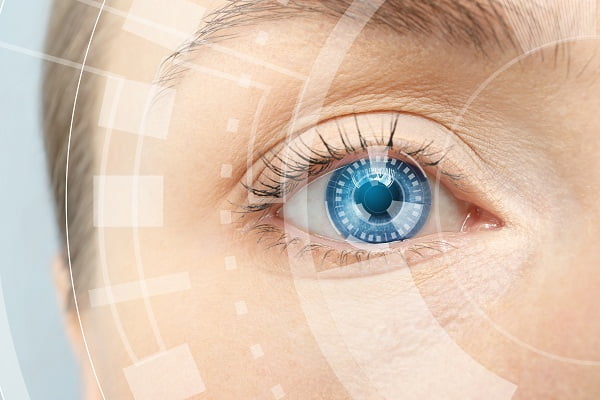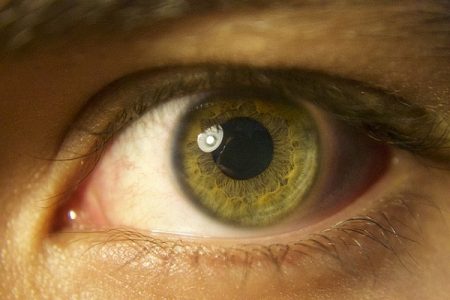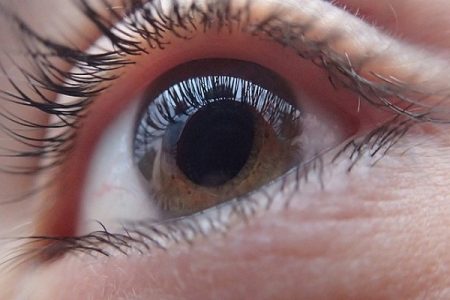An Overview of Retinal Detachment
- Updated on: Jul 12, 2024
- 4 min Read
- Published on Oct 3, 2019


What is retinal detachment?
The retina is a thin layer of tissue that lines the back wall of the eye. It is responsible for absorbing light that enters the eye and converting it into a signal that is sent to the brain, allowing you to see via the optic nerves.
A retinal detachment is serious eye condition which involves separation of the retina from its attachments to the underlying tissues within the eye. The retina separates from the back wall of the eye, such as a wallpaper peels off a wall.
After detaching, the retina can’t receive the light signals that can be further transferred to the brain for processing. Depending upon the extent of detachment, vision loss can be severe and permanent, if it is not treated immediately.
Sometime, small areas of retina may get torn. These areas are called retinal tears or retinal breaks which can lead to retinal detachment.
More: What is age-related macular degeneration?
What are the types of retinal detachment?
Retinal detachment can be categorized into following three categories based on the cause of detachment.
- Rhegmatogenous retinal detachments
- Tractional retinal detachments
- Exudative retinal detachments
What are rhegmatogenous retinal detachments?
This is the most common type of all detachments. Usually, they happen because of a tear or break in the retina. These tears or breaks allow fluids to get under the retina and separate it from the retinal pigment epithelium (RPE) – the layer that is responsible for nourishment of the retina.
Retinal tears may be the result of:
- vitreous gel separation from retina as part of aging
- due to lattice degeneration – thinning of peripheral retina
- occasional trauma
What are tractional retinal detachments?
In this type of detachment, scar tissues which grow on retina’s surface contracts and pull out the retina, to separate from retinal pigmented epithelium. This kind of detachment is less common and may occur due to conditions such as diabetes etc.
What are exudative retinal detachments?
This type of detachment is also known as secondary retinal detachment or serious retinal detachment. These kinds of detachments are frequently caused by an injury, inflammation, or neovascularization when there is excessive leakage of fluids underneath the retina. There are no tears or breaks in the retina.
More: What is diabetic retinopathy?
What are the symptoms of retinal detachments?
Retinal detachments don’t have any kind of pain associated with them but warning signs appear as they occur or advance themselves. These may include:
- A sudden and significant increase in the appearance of floaters – tiny specks that seem to drift through your field of vision as your eye moves
- Photopsia – flashes of light on one or both eyes
- Overall decrease in vision or a blurred vision
- Gradually decreasing side (peripheral) vision
- A curtain like shadow into field of your vision
- A heaviness in the eye
You should seek immediate medical attention, if you feel any of those symptoms especially if you are older than 50 years and very nearsighted.
What are the causes of retinal detachments?
There are various causes of retinal detachments, such as:
- Injury to the eye
- Blow to the head
- Eye diseases
- Eye surgery
- Advanced diabetes
- Excessive nearsightedness or myopia
- Thin areas of the retina may ultimately lead to retinal detachment
- A sagging vitreous
- Separation of vitreous from retina in old age , a condition known as posterior vitreous detachment (PVD)
What are the risk factors for retinal detachment?
Various risk factors for developing retinal detachments include:
- Aging – retinal detachments more often occur in old age
- Lattice degeneration – thinning of peripheral cornea
- Previous retinal detachment in one eye
- Family history of retinal tears or retinal detachments
- High myopia – extreme nearsightedness
- Previous eye surgery such as cataract surgery
- Severe eye injury
- Other eye disease and eye inflammation
- Poorly managed diabetes
How is retinal detachment diagnosed?
If your doctor suspects a retinal detachment, he/she will usually refer you to a specialist of eye – ophthalmologist, for proper diagnosis.
The ophthalmologist will perform retinal examination by using an instrument with a bright light and a special lens to examine the back of your eye including the retina. It allows a detailed view, to see any retinal holes, tears or detachments.
Sometimes, the ophthalmologist may also recommend for ultrasound imaging if bleeding in your eye makes it difficult for him/her to see your retina.
More: What is a Cataract?
What are the treatment options for retinal detachment?
The main goal of treatment is to seal the tears and breaks that can cause retinal detachment and to re-attach the retina to the back of the wall of the eye.
When only holes or tears are diagnosed which have not progressed to retinal detachment yet, your doctor may suggest any of these procedures to prevent retinal detachment and ultimately preserve your vision.
Photocoagulation (Laser Surgery)
During this procedure, a laser beam is directed into the eye through the pupil which makes burns around the retinal tear. This welds the retina to the underlying tissue.
Cryopexy (Freezing)
The edges of the tear are sealed by freezing the wall of the eye behind the tear. Usually, a local anesthetic is used during this procedure to numb the eye.
If the retina is detached already, you will usually need surgery to fix it. Several approaches are employed for the repairing of detached retina, but the type you would need is recommended by your doctor based on the severity of the detached retina. These procedures include:
Scleral buckle
In this surgery, a very thin band of silicone rubber is placed outside the eye wall to push the wall of the eye closer to the retinal tear in order to close the tear. Then cryopexy is used to seal the tear.
Vitrectomy
In this surgery, the vitreous gel is removed from the eye and a gas bubble or silicon oil bubble is used to flatten the retina in place. Eventually, air or gas liquid gets absorbed and vitreous space gets filled by body fluid.
Pneumatic retinopexy
In this procedure, a bubble of air is injected into the central part of the eye and if positioned properly, the bubble pressure pushes the part containing hole or tears against the wall of the eye, stopping the fluid flow into the space behind the retina.
Cryopexy is then used to seal the tear of the retina. The bubble eventually gets reabsorbed by itself.
In some cases, very small detachments can be walled off by using laser to prevent the detachments in getting bigger in size.
How can retinal detachment be prevented?
Retinal detachment can’t necessarily be prevented since it usually occurs spontaneously without any prior sign. You should consult your doctor as soon as you feel any of the symptoms related to retinal detachment.
Always wear eye protection. If you have diabetes or high blood pressure, keep them in control, as they affect retinal health severely. Get your eyes examined frequently.












